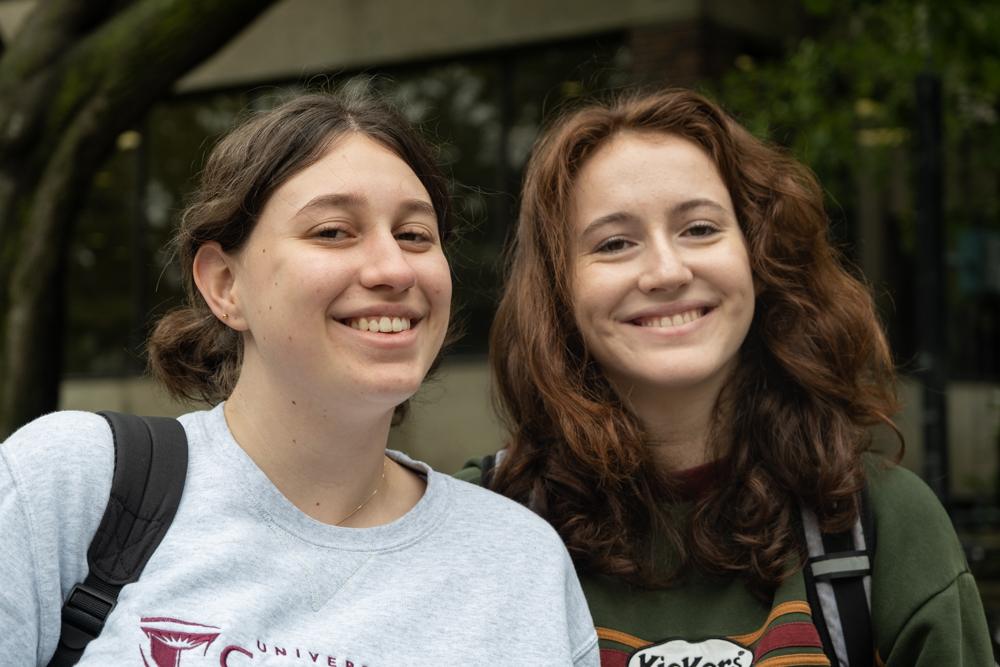Students share their opinions on the strike for a reading week in the fall semester
As of Oct. 2, 13 member associations (MAs) within the Arts and Science Federation of Associations (ASFA) have passed a mandate to strike from Oct. 3 – 7 for a fall reading week. The growing awareness of the reading week strike has spread across Concordia, resulting in some students having strong thoughts on the subject.
The Concordian interviewed students across both Sir George Williams and Loyola campuses to get their opinions regarding the upcoming reading week strike:
Amélie (left) and Lennie (right)
“I think it should happen because we have one in the winter, and other schools have them, so I think it only makes sense to have the whole week off to catch up on studies and have time for midterms,” said Lennie.
“I think it is a good idea because it’s important to have time to catch up on school, but it’s important to have time for other stuff than school like leisure, family or anything else in your life. I feel like when you’re in school you have less time for that,” said Amélie.
Luca Quol (left) and Sofia Pofizkus (right)
“I honestly just learned about it yesterday. I am in support of it. I think it’s kind of ridiculous that we don’t have a reading week, it seems like every other university in Canada does,” said Quele.
“I think it’s a good idea, honestly, since everyone else has one. We also need a break in the fall, not just the winter,” said Pofizkus.
Emma Megelas
“I think that it’s beneficial for students to do the strike and the reading week. Not only will it give us more time to study and be prepared, it will help to spread out our schedule so that you’re not crammed with other exams you have to do. You also won’t feel so stressed with work or getting a good grade, so you can be feeling a lot more confident with what you got,” said Megelas.
Luca Safar (right) and Exael Cormarie (left)
“I think it’s fair enough, you know what I mean? Reading weeks are important and they said that they would give one,” said Safar.
“I think it’s interesting and motivating to see everybody wanting to do this. I am an international student, so I don’t really know what a reading week is, but I do like the idea of having extra time to relax. We don’t seem to have that many breaks already throughout the term,” Exael said.
Mohammad Abdullah
“No, I am not against it. I wasn’t sure about the reading week strike but now that I heard about it, I’m sure that students should get the time to participate. They can get their homework done. It’s good to have a strike. I’ll probably catch up with my homework, my labs, assignments, and get ready for midterms,” Abdullah said.
Francisco Ceballos (left) and Cesar Delossantos (right)
“I think it should happen because other schools have a reading week in the fall term. I’m gonna need to study and catch up on my other classes,” said Delossantos, a civil engineering student.
“I think it’s a really good opportunity for students so they can catch up. Some students might have fallen behind on classes so it also gives them the opportunity to catch up. It has also been really crazy since we’ve been back in school. It’ll be great for everyone to relax, not stress out and settle down a little bit to use that time to catch up with notes and things like that,” said Ceballos, who is currently pursuing a degree in civil engineering.
